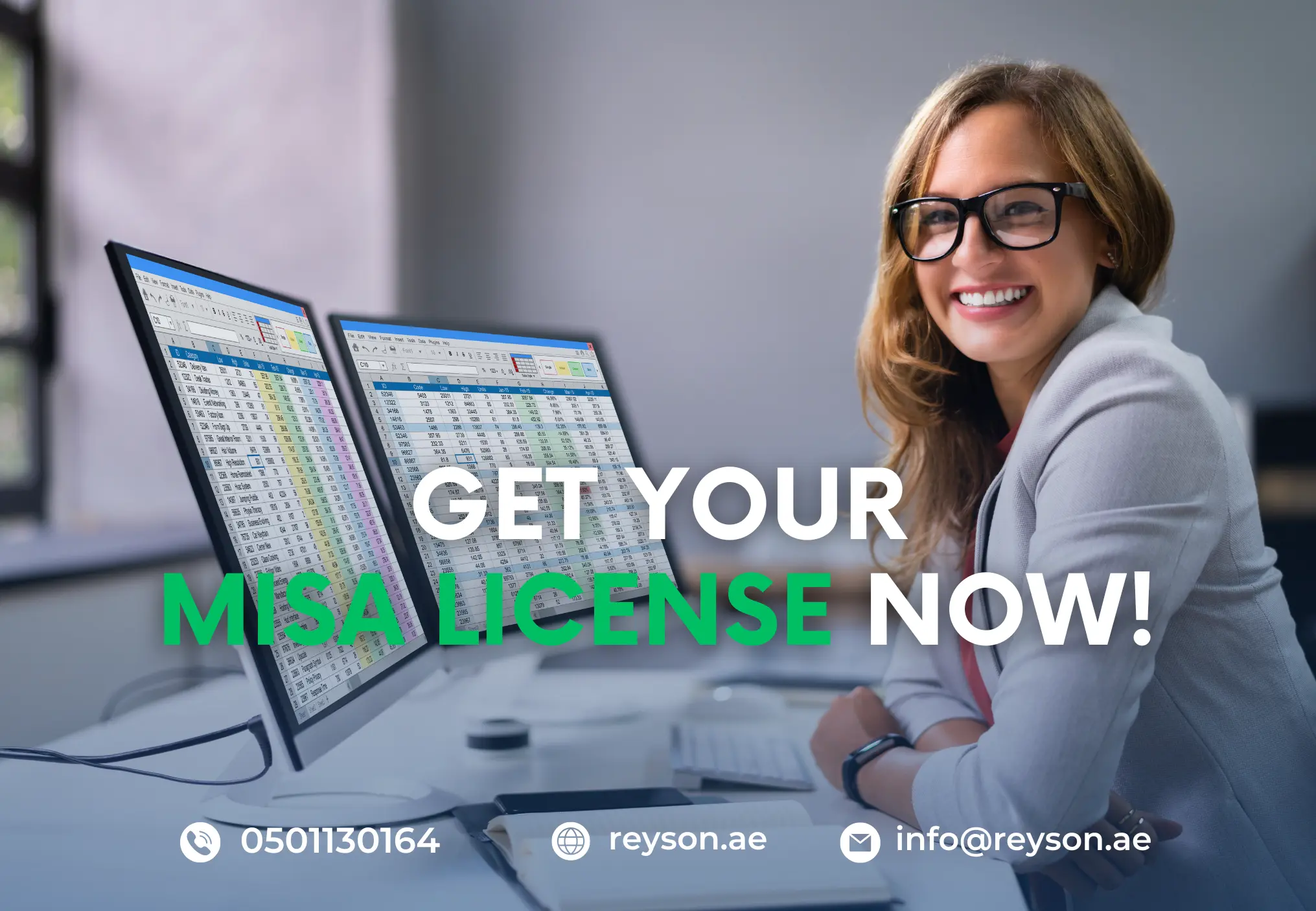The Saudi Arabian economy presents exciting opportunities for aspiring entrepreneurs and foreign investors. Nevertheless, the licensing process can prove challenging, particularly with the recent establishment of the Ministry of Investment (MISA). Here we are demystify the MISA license in Saudi Arabia and equip you with the knowledge to tackle this stage confidently.

Previously known as SAGIA, MISA was formed in 2020 to facilitate and attract foreign direct investments (FDI) in Saudi Arabia. As part of its efforts, the ministry streamlines the licensing process, provides support services, and promotes investment opportunities aligned with Vision 2030 goals for the Kingdom.
In accordance with your business activity and business structure, MISA offers various licenses:
To know the next steps after the MISA Registration, check out our Company Formation Process in Saudi Arabia.
In addition to licensing, MISA offers a number of support services to investors, including:
Obtaining a MISA license in Saudi Arabia can be a smooth process with proper preparation and understanding. By utilizing this guide and exploring MISA's resources, you can confidently embark on your entrepreneurial journey in Saudi Arabia and contribute to the Kingdom's economic transformation. Remember, staying informed, seeking professional guidance, and tailoring your application to MISA's objectives are key to success. If you have any queries regarding the MISA Licensing, feel free to get in touch with Reyson Badger.
If one fails to register for VAT in Dubai before the deadline, the fines can be as high as AED 20,000 according to FTA rules.
Yes, Small businesses with a taxable turnover of between AED 187,500 and AED 375,000 can optionally apply for VAT registration in Dubai.
Yes, those free zone companies that make taxable supplies have to file for VAT registration in Dubai if their turnover exceeds the threshold
The process normally takes 20 business days, provided all required documents and information are submitted accurately.
Getting registered for VAT is essential for businesses in Dubai that reach the required income level. It ensures you follow local tax rules, lets you recover VAT on expenses, and helps build trust with clients and vendors both locally and internationally.
Companies in sectors like retail, construction, hospitality, logistics, consulting, and e-commerce often deal with taxable transactions. That’s why they usually need professional support for VAT registration services tailored to their industry in Dubai.
Yes, even new businesses can apply for VAT registration voluntarily if their taxable costs or expected revenue reach the minimum threshold. This helps them recover VAT on startup expenses and manage early-stage finances more efficiently.
After submitting your application to the Federal Tax Authority (FTA), you can track its status online using their official portal. Many businesses rely on VAT service providers to keep them informed and assist with follow-ups during the registration process.
Once your business is registered, your invoices must include VAT details as required by the FTA. You’ll also need to adjust your pricing to include VAT, which may require updates to your billing system and staff training.
Yes, related companies under common ownership can apply for group VAT registration. This allows them to file a single VAT return, making tax reporting simpler with the help of experts who handle group VAT applications in Dubai.
VAT registration becomes mandatory when your business income goes over AED 375,000 annually. However, if it exceeds AED 187,500 but stays below the mandatory limit, you can choose to register voluntarily. VAT service providers in Dubai can help you decide the right path based on your business size and activities.
Most businesses file their VAT returns every three months, but some may be asked by the FTA to file monthly. A VAT consultant or tax expert can help ensure that returns are filed on time and in the correct format.
Yes, a business can apply for VAT deregistration if it shuts down or earns below the minimum limit for a certain period. It’s important to follow the correct procedure, which can be managed by professionals offering VAT deregistration services in the UAE.
Businesses that are residents of the UAE and generate taxable supplies within the country are required to register for VAT, provided that the total value of their imports and taxable supplies in the previous year surpassed AED 375,000, or is anticipated to exceed it in the upcoming 30 days. Regardless of the value of their taxable supplies and imports, non-resident enterprises that make taxable supplies in the UAE are required to register for VAT if no one else is responsible for paying the applicable tax on these supplies in the UAE.
Businesses that are residents of the UAE and that make taxable supplies within the country are eligible to voluntarily register for VAT if the value of their imports, taxable expenses, and taxable supplies exceeded the AED 187,500 voluntary registration threshold in the previous year or is anticipated to do so in the upcoming 30 days.
The registrant's e-Services account dashboard will have a soft copy of the VAT registration certificate. Nonetheless, the registrant can click here to access the service if necessary.